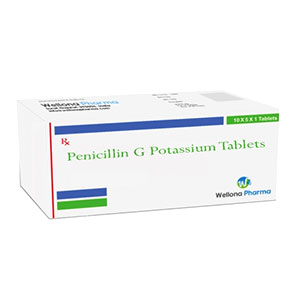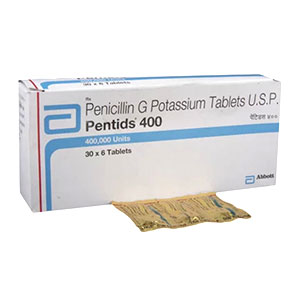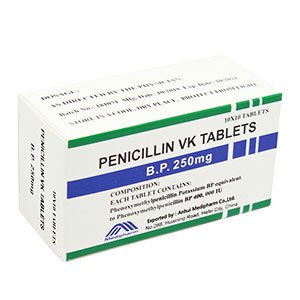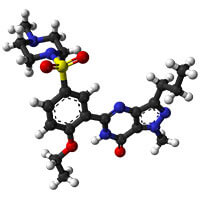The largest price comparison for medicines: the most popular pharmacies in comparison. Buy more than 200 medicines at low prices






Patent: Patent expired
Producer: Ratiopharm GmbH, STADAPHARM GmbH, PHARMA® GmbH
Dosage: 1Mega, 1.2Mega, 1.5Mega
Dosage form: film-coated tablet(s)
Unit of measurement: Mega
Active ingredient: phenoxymethylpenicillin
Application areas:
bacterial infections
Drug class:
Onset of action:
Duration of action:

Bioavailability: 50-100%
ATC-Code: J01CE02
Protein binding: ≥ 80%
Metabolism: Liver
Metabolites:
Half-life: 30-60 minutes
Excretion: Kidneys
CAS number: 87-08-1
PubChem-CID: 6869
Drug Bank: DB00417
ChemSpider: 6607
UNII: Z61I075U2W
KEGG: D05411
ChEBI: CHEBI:27446
ChEMBL: ChEMBL615
ECHA-InfoCard: 100.001.566
Formula: C16H18N2O5S
Molar mass: 350.39 g·mol
The active ingredient is called phenoxymethylpenicillin. Phenoxymethylpenicillin is an oral antibacterial drug belonging to the penicillin group. It has a bactericidal effect, inhibits the synthesis of peptidoglycan of the bacterial cell wall, which leads to its destruction and the death of the bacterial cell.
The maximum plasma level is reached within 30-45 minutes after taking the drug.
Phenoxymethylpenicillin is eliminated primarily unchanged (25% of the ingested dose) and in the form of metabolites (35% of the ingested dose) via the kidneys; about 30% is excreted via the gastrointestinal tract.
The dosage depends on the type and sensitivity of the pathogen, the severity of the bacterial infection and the patient's medical condition.
Penicillin tablets are swallowed whole with a glass of water about an hour before meals. Children can take it during meals.
The daily dose is distributed evenly throughout the day in 3 to 4 individual doses, if possible at intervals of 8 hours. In the case of throat, nose and ear infections, the total daily dose is divided into 2 individual doses, if possible 12 hours apart.
The recommended dose for adults and children over 12 years of age is 295-885 mg of phenoxymethylpenicillin (0.5-1.5 million units) 3 to 4 times a day.
The recommended dose for children under 12 years of age depends on body weight and age.
The treatment usually lasts 7 to 10 days.
tendency to allergies
Severe gastric and intestinal disorders
Use of non-enzymatic methods for urine sugar determination
Caution with long-term use
Beware of heart disease
Hypersensitivity to the ingredients
Safe
Alcohol consumption should be avoided
The effects of both substances can influence each other unfavorably.
Ask your doctor about this
If you take more than you should, tell your doctor. There could be side effects.
There is a risk of significant interactions. Therefore, medical supervision is recommended.
Diarrhea
Facial edema
Drug fever
Joint pain
Tongue swelling
The effect of the drug is influenced by the food.
Keep this medicine out of the sight and reach of children.
Do not store above +30°C
Can you buy penicillin without a prescription?


In what dosage forms and dosages can penicillin be bought?


Was kostet Penicillin?


Who Invented Penicillin?


Penicillin tablets are used to treat mild to moderate infections caused by pathogens susceptible to phenoxymethylpenicillin that respond to treatment with penicillin tablets, such as:
The antibiotic penicillin in the form of tablets is also used to prevent bacterial inflammation of the inner lining of the heart and to prevent a recurrence of rheumatic fever.
In addition to film-coated tablets, you can also buy penicillin in the form of juice/suspension/dry juice.
Like any antibiotic, penicillin has contraindications for use. Many people have an increased sensitivity to the drugs of the penicillin group and sulfonamides. Therefore, another antibiotic is recommended for such people. Penicillin tablets are not recommended for hay fever, bronchial asthma, hives and for pregnant women and nursing mothers.
Alcohol consumption is strictly prohibited during treatment with penicillin.
As alternatives to penicillin, you can buy the antibiotics Zithromax, Augmentin, Amoxil, Doxycycline, Flagyl, Erythromycin or Ampicillin.

Hello, I have been taking penicillin tablets for severe tonsillitis for 3 days. My throat doesn`t hurt as much and my fever has gone down. As for side effects, I have the diarrhea but I want to continue the treatment.
17.04.2022


Subscribe to our newsletter and get the latest updates and special offers!
Leave a comment
Thank you for sharing your experience!
Your experiences will be published soon!